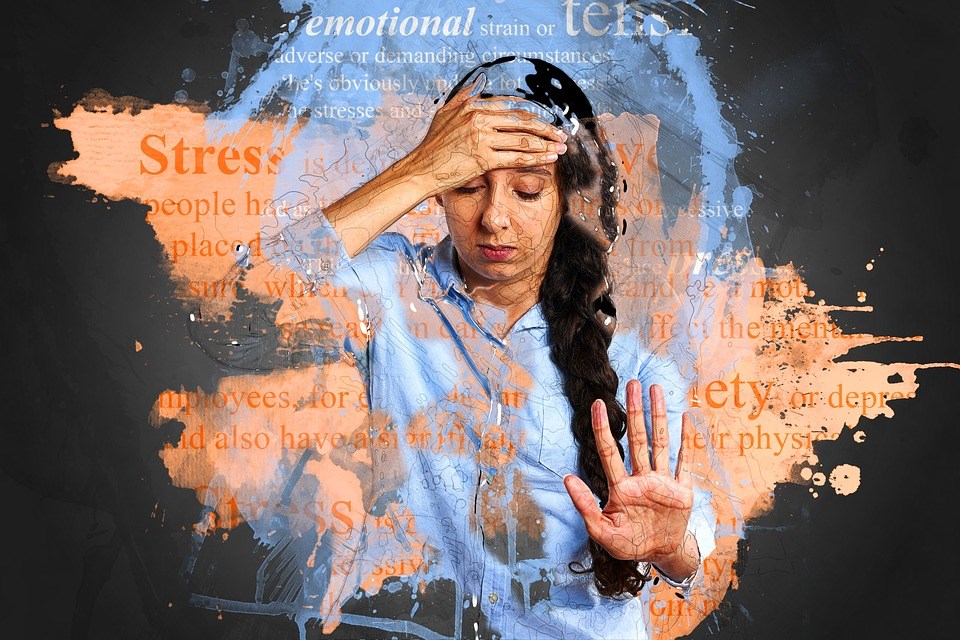by Dr. Georgia Gaveras
As the rich jewel tones of autumn begin to fade into winter's silvers and grays, twinkling lights and candy canes immediately replace the harvest moon and pumpkins. And so it begins, the most wonderful time of the year. But not for all of us!
The holiday season can be very difficult for many people. Some people feel the weight of the stresses of the holidays, others have a seasonal condition, while others may be suffering from clinical depression unrelated to, or perhaps made worse by, the holiday season. Let's take a look at each.
For many, the struggle during this season is not concisely defined, yet the near-constant presence of reminders about the holidays feels like a heavy burden. Walking into a store or mall, or turning on the television or radio, it's hard not to be inundated with chatter about holiday plans or the buzz of seasonal music. What can one do to combat the feelings of sadness and anxiety that the season may trigger?
Self-care is always important. Keep as regular a schedule as possible and avoid overindulgence. While the temptation is frequent—and it's perfectly fine to treat yourself occasionally—try to maintain healthy eating, sleep and exercise patterns, and minimize alcohol consumption. You'll feel better in the short-term and won't have the regrets or challenges of getting healthy again longer term.
Of course, overindulgence can go beyond champagne and holiday cookies. Gift-giving does not have to mean going into debt. It truly is the thought that counts. So be mindful of your own financial health before showering friends and family with extravagance.
The challenges of the season go beyond the obvious. Social media postings and holiday cards provide an endless stream of happy, happy people with seemingly perfect lives. Remember: People post what they want to show the world. Their smiling child on Santa's lap may have been the same child throwing a tantrum in the toy aisle a few minutes later.
Also remember: People may don a mask of joy, even if they are struggling. A good way to feel better about yourself is to try to help others. Just because they are smiling on Facebook doesn't mean your friends won't appreciate you checking in to see how they are really doing, and whether they need a friendly ear to share what's really bothering them. They may feel better, and so may you.
For other people, it may not be about the holidays, but rather about the short days and long nights of December and the coming winter. There's a condition called Seasonal Affective Disorder (SAD), a type of depression that occurs each year, at the same time of year. According to the American Psychiatric Association, it affects up to five percent of Americans, can last up to 40 percent of the year and tends to occur in the months when one is exposed to less sunlight. SAD is more common among young adults and affects more females than males, although depression is more common, generally, in females.
People who suffer from SAD may experience the following symptoms, which are similar to depression:
- Anxiety
- Sadness
- Inability to concentrate
- Withdrawal from social activities
- Extreme fatigue and lack of energy
Fortunately, with treatment, people recover from SAD. Treatment for SAD includes minimally invasive and very effective light therapy.
Still, other people may be suffering from depression unrelated to the holidays or the limited exposure to sunlight. Because the symptoms can be so similar, it can be hard to tell the difference without specialized medical training.
At NYC Health + Hospitals/Kings County, patients can come to either our Behavioral Health Department or our Primary Care Clinic, where they can be screened for depression and, when needed, receive treatment, even in the primary care setting. It's an important part of our ongoing commitment to tackling the mental health challenges in our neighboring community.
As with any changes in mood and anxiety, it is important to seek professional help if it is impacting your daily functioning. If you or a loved one is struggling with more severe symptoms of depression or anxiety, or if there is any concern about suicide, please seek immediate help from a mental health professional.
To learn more about the Behavioral Health Department at NYC Health + Hospitals/Kings County, visit https://www.nychealthandhospitals.org/kingscounty/our-services/behavioral-health/. To make an appointment anywhere in our public health system, please call 1-844-692-4692.
Dr. Georgia Gaveras, DO, is the director of the Comprehensive Psychiatric Emergency Program (CPEP) at NYC Health + Hospitals/Kings County.




